
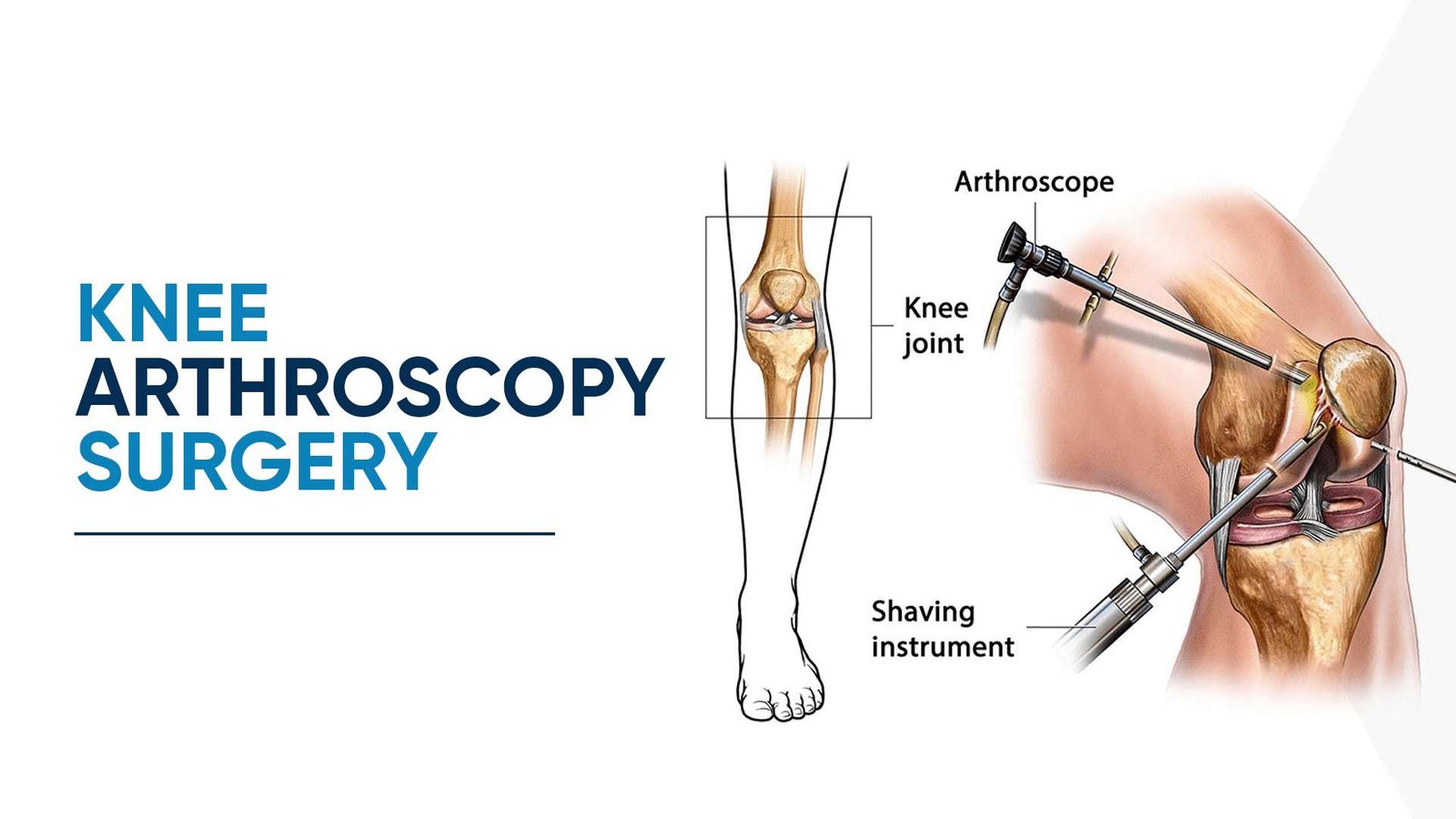
Welcome to Arora Clinic, the leading destination for the Knee Arthroscopy Surgery in Thane, led by renowned surgeon Dr. Bakul Arora. If you’re considering knee arthroscopy surgery, you’ve come to the right place. We understand the importance of finding the Best knee arthroscopy surgeon in Thane, and our expert team is dedicated to providing exceptional care and optimal outcomes for our patients. Read on to learn more about knee arthroscopy surgery and why Arora Clinic is your top choice for knee arthroscopy in Thane.
Knee arthroscopy is a minimally invasive surgical procedure that allows surgeons to diagnose and treat various knee conditions with precision and minimal disruption to the surrounding tissues. It involves the use of a small camera, called an arthroscope, which is inserted through small incisions around the knee joint. The arthroscope transmits images to a monitor, enabling the surgeon to visualise and perform the necessary surgical interventions.
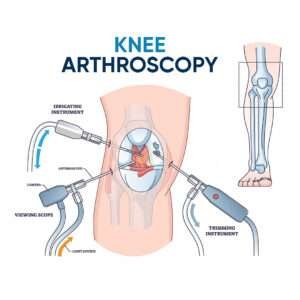
Knee arthroscopy may be recommended for individuals experiencing persistent knee pain, swelling, or instability that doesn’t respond to conservative treatments such as physical therapy or medication. It is also commonly performed to address specific knee injuries sustained during sports or accidents.
Searching for a Knee Arthroscopy Surgeon near me? Arora Clinic in Thane offers expert knee arthroscopy surgery, utilizing minimally invasive techniques to diagnose and treat knee issues. Our skilled surgeons are dedicated to providing effective treatment, ensuring a quicker recovery and better outcomes. Explore more about our specialized knee care at Arora Clinic.
If you are seeking the Best Knee Arthroscopy Surgery in Thane, look no further than Arora Clinic. Led by the highly skilled and renowned surgeon, Dr. Bakul Arora, our clinic is dedicated to providing exceptional care and optimal outcomes for our patients. As the leading Knee Arthroscopy Specialist Clinic in Thane, we combine advanced surgical techniques, personalised attention, and a compassionate approach to ensure the highest level of care for every individual.
At Arora Clinic, we understand the importance of finding the Best Knee Arthroscopy Surgeon in Thane. That’s why we strive to deliver excellence in every aspect of our practice. With a focus on minimally invasive procedures, we aim to minimise discomfort, promote faster recovery, and optimise the overall patient experience. Our team of experts is well-versed in various types of knee arthroscopy surgery, including meniscectomy, meniscus repair, ACL reconstruction, and synovectomy, enabling us to address a wide range of knee conditions with precision and expertise.
When it comes to Knee Arthroscopy in Thane, Arora Clinic has earned a reputation for being the go-to destination. We are committed to providing the best possible care, guiding patients through the recovery process, and helping them regain knee function and improve their quality of life. Trust Arora Clinic for the Best Knee Arthroscopy Surgery in Thane and experience excellence in care that truly makes a difference.
Arthroscopic knee surgery is generally associated with minimal pain. During the procedure, anaesthesia is used to ensure you are comfortable and do not feel any pain. After surgery, some discomfort and soreness may be experienced, but this can usually be managed effectively with pain medication prescribed by your surgeon.
The use of a knee support or brace after arthroscopic knee surgery may be recommended by your surgeon. It can provide additional stability and support to the knee during the early stages of recovery. Your surgeon will advise you on the specific type and duration of knee support required based on your individual condition and surgical procedure.
Arthroscopic knee surgery is considered a minimally invasive procedure and is generally less serious compared to traditional open knee surgery. It involves smaller incisions, reduced tissue trauma, and faster recovery time. However, like any surgical procedure, there are potential risks and complications that your surgeon will discuss with you beforehand.
Arthroscopic knee surgery is generally considered a minor or intermediate procedure. It is less invasive compared to open surgery, typically involves smaller incisions, and has a lower risk of complications. However, the seriousness of the surgery may vary depending on the specific procedure being performed and individual factors.
The recovery time after arthroscopic knee surgery varies depending on the type of procedure performed and individual healing. In general, it may take several weeks to months to fully recover. Your surgeon will provide specific guidelines regarding activity restrictions, physical therapy, and the gradual resumption of normal activities.
Walking is typically encouraged and initiated soon after arthroscopic knee surgery. However, the timing and extent of weight-bearing activities may vary depending on the procedure performed and your surgeon’s instructions. Crutches or assistive devices may be used initially to support mobility, and your surgeon will guide you on when you can bear full weight on the operated leg.
It is generally recommended to sleep with your leg elevated to reduce swelling and promote healing after knee arthroscopy. Placing a pillow under your heel can help elevate the leg slightly while lying on your back. Your surgeon may provide specific instructions on the most comfortable sleeping position for your particular case.
Following knee arthroscopy, it is important to follow your surgeon’s instructions regarding wound care, pain management, weight-bearing restrictions, and physical therapy exercises. Precautions may include avoiding excessive weight-bearing or high-impact activities, keeping the incision area clean and dry, and wearing any recommended knee support or brace.
The timeline for walking normally after arthroscopic knee surgery can vary depending on the individual and the specific procedure performed. Typically, patients begin walking with the help of crutches or assistive devices immediately after surgery and gradually transition to walking without assistance over a period of days to weeks. Your surgeon will provide specific guidance based on your progress and recovery.
The duration of knee arthroscopy surgery can vary depending on the specific procedure and the complexity of the condition being treated. Generally, the surgery can take anywhere from 30 minutes to a few hours.
The time it takes to resume normal activities can vary depending on the individual and the specific procedure performed. It is important to follow the surgeon’s guidance and gradually increase activities as advised.
We are really honored to receive this and we will continue to serve the society better than ever We aim to provide the world-class Knee/Hip Replacement Surgical (Minimal Invasive Surgery) treatment to every patient suffering from knee or hip pain and at the same time make their life pain-free and happy.
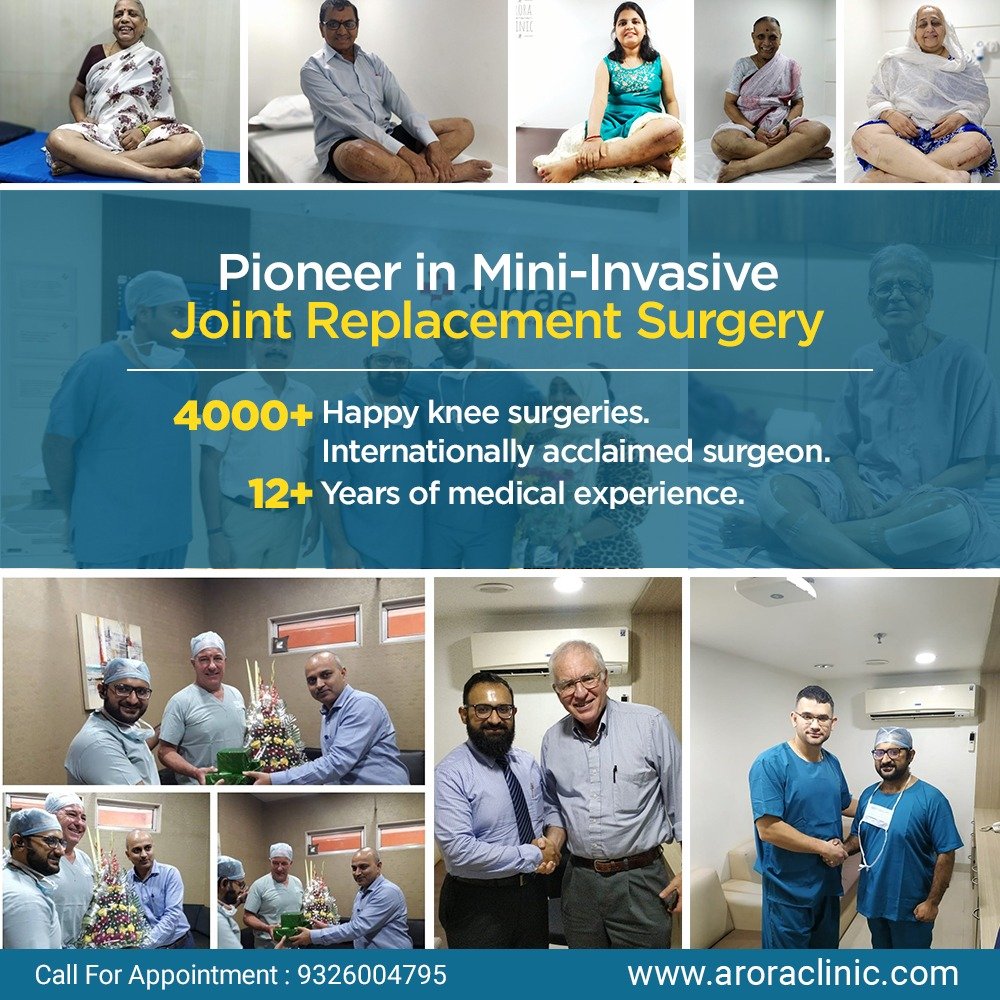
Dr. Bakul Arora’s Joint Replacement Clinic is also known as “Arora Clinic” which is located at Hiranandani Meadows in Thane, within a very convenient proximity to Mumbai. Arora Clinic dedicated clinic for Knee Replacement surgery and all kinds of Orthopaedic treatments and surgeries
The Arora Clinic is one of the most advanced Orthopaedic clinic in Thane region and dedicated to providing the best, personalised healthcare with a breadth of surgical and medical expertise. Arora Clinic offers the modern surgical treatments like “Minimally Invasive Knee Replacement Surgery” which is also called as “PAIN-LESS SURGERY” for any complex knee diseases.
Dr. Bakul Arora is a Consultant Joint Replacement & Orthopaedic Surgeon is one of the leading Knee Replacement Surgeon in Thane and Mumbai with over 4000+ successfully surgeries. Dr. Bakul Arora specialises in Mini-invasive techniques which offer multiple benefits to patients. He does the surgery using Subvastus approach for Knee Replacement surgery and Direct Anterior Approach for Hip replacement Surgery . This new techniques has many advantages for patients like its pain-less , stich-less surgery, patients walks on the same day after surgery, no blood loss, faster recovery etc.


Knee replacement is required for advanced arthritis of the knee joint, producing painful limitation of movements and restriction in activities of daily living. Knee replacement as a solution should be offered when all non–surgical methods of treatment failed and painkiller medicines and injections also failed to reduce the Knee and hip pains.
Knee replacement can be total or unicondylar, depending on the number of compartments involved. Among the total knee replacement, there are two popular designs- Cruciate Retaining, and Posterior Stabilized. The decision for the design is best taken by the operating orthopedic surgeon based on the integrity of ligaments. Patella resurfacing as a routine is a debatable subject.
Yes, most knee replacement surgeries are minimally invasive, with numerous benefits to the patient, including smaller incisions, less tissue trauma, bleeding and post–operative pain, shorter hospital stays, faster recovery, and earlier return to work and activities — in weeks rather than months. Advantages of Minimally Invasive Knee Replacement Surgery. Patients Start walking in few hours of surgery. Patients start climbing the staircase from second day of his surgery. Patients Discharge with in 3 Days from the Hospital after surgery. No blood loss during the surgery, no blood Transfusion required. Less Physiotherapy.( No Physiotherapist required for home) Less Antibiotic. Stitchless Surgery. Recovery time is just two – three week.
Bilateral knee replacement in the same sitting, can be performed if both the knee joints are damaged to the same extent, however, the medical condition of the patient, and bone quality must be kept in consideration.
Surgery through Minimally Invasive technique patients start walking on the same day and staircase climbing starts from the second day of surgery. Patients can resume his work after 3 – 4 week.
The most significant risks include Infection, Deep vein thrombosis,and Aseptic loosening of implants. The risks correlate with the co-morbid medical condition, and must be discussed with the patient before surgery.
Patients normally require hospitalization for 3-4 days in single knee replacement, and up to 5-6 days in both knee replacement surgery
A single knee replacement takes approximately 90 min- 2 hours. Both knee replacement surgery takes approx 2-3 hours.
Years ago, knee replacement surgery was reserved for elderly patients due to a high complication rate and lack of implant durability. Modern techniques have allowed orthopaedic surgeons to base surgical decisions on a patient’s pain and disability, and not necessarily chronological age. Most patients who undergo knee replacement are between the ages of 50 and 80, but surgeons evaluate patients individually and primarily on their physiologic age and demands.
Patients can resume his/her light work after discharge from the hospital, no need for rest.
Patients are given epidural anesthesia for surgery, and post op pain relief. They are expected to follow instruction from physiotherapist regarding muscle training.
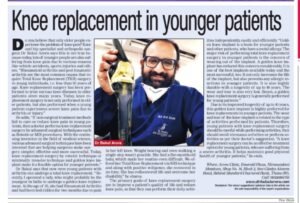
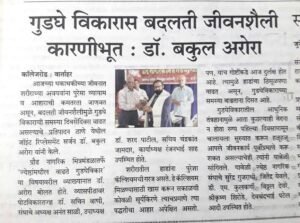
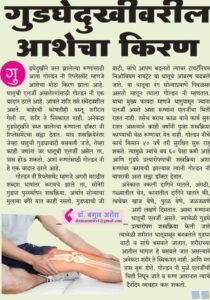

⇒ Wockhardt Hospital Mumbai Central, Mira road & Vashi
⇒ Apollo Spectra Hospital, Tardeo and Chembur
⇒ Cloud 9 Hospital, Malad
⇒ Criticare Hospital, Andheri
⇒ Arora Clinic, Hiranandani Meadows
⇒ Bethany Hospital, Vasant Vihar
⇒ Currae Hospital, Kapurbawdi
⇒ Horizon Hospital, Ghodbunder
⇒ Infinity Hospital, Majiwada
⇒ Lakecity Hospital, Khopat
⇒ Oscar Hospital, Majiwada
⇒ Drone Hospital, Bhiwandi
Arora Clinic, Shop No. 13, Block 2, Emerald Plaza, Hiranandani Meadows, Glady Alvares Road, Behind Standard Chartered Bank, Thane west – 400610
Contact: +91 93260 04795
Managed By Hopeland Healthcare @ All Rights Reserved 2023.
WhatsApp us